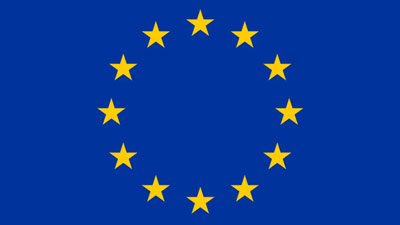Vacancies
EINST4INE’s 15 Early Stage Researchers (ESRs) will work on exciting projects in the domain of industrial digital transformation.
We currently have 2 vacancies for Junior Researchers open until 9th February.
To ensure that you meet all eligibility criteria, please refer to the recruitment guidelines before submitting an application.
Vacancies
EINST4INE’s 15 Early Stage Researchers (ESRs) will work on exciting projects in the domain of industrial digital transformation.


Thank you for visiting our site. This call is now closed and all positions are covered.
Host institution: RMIT Europe, Spain | Line Manager: Anne-Laure Mention
Objectives: This project will:
- Identify and examine organisational capabilities, processes and structures (formal and informal) that support and drive (or hinder) digital transformation.
- Investigate what are the organisational capabilities that advance (or hinder) the digital transformation and use of enabling technologies across industries (with particular focus on mature companies in low-tech sectors).
The research will mainly employ qualitative research design including action research approach.
Expected results:
- Roadmaps to renew organisational capabilities, processes and structures that are needed for digital transformation.
- Maturity models that illuminate different growth trajectories and digital transformation journeys.
- Capability readiness frameworks.
Host institution: RMIT Europe, Spain | Line manager: Anne-Laure Mention
Objectives: Industrial convergence is an inevitable phenomenon that modifies the rules of industries and is simultaneously a catalyst and an outcome of the emergence of new ecosystems. Technological convergence is regularly viewed as an antecedent of industrial convergence, yet much remains to be investigated about the relationship between the two phenomena – industrial and technological convergence – as well as the sequence in which they occur. The identification of convergence patterns at an early stage, i.e. where and when the industry and the market structures are unclear, is crucial for firms as it provides them with the ability to anticipate and adjust their offering and market positioning. A further area of investigation relates to the interplay between the emergence of technology-centred ecosystems, as well as their orchestration mechanisms.
This project aims to address relevant and significant gaps in this literature, mainly around the identification of convergence patterns and the interplay between types of convergence, and the development of new ecosystems and their orchestration. This project will have a strong empirical component and will be largely data-driven. Data sources will be patent data (e.g. USPTO, EPO and possibly Derwent Patent Innovation Database or another proprietary database), and will use visualisation tools and data mining techniques.
Expected results:
- A tool for technology and innovation managers to assist in the identification of future technological trajectories and strategic partner identification for ecosystem development.
- A framework to raise awareness of the possible trajectories of technological and industrial convergence.
- A framework to assist technology-centred ecosystem orchestrator in the management of emerging technology-centred ecosystems.
Host institution: RMIT Europe, Spain | Main supervisors: Anne-Laure Mention and Justyna Dabrowska
Objectives: The work of ESR 1 will be dedicated to identifying current and future skills and competencies of employees dealing with the management of digital transformation, including new ways of working within and across organisational networks. It will also focus on exploring behavioural aspects of employees affected by digital transformation; interplay between human and enabling technologies and contingencies.
Expected results:
- Insights into the current and future skills and competencies.
- Managerial and policy implications on the future of work considering the interplay between humans and digitally enabling technologies.
Host institution: Scuola Superiore Sant’Anna, Italy | Main supervisors: Calogero Oddo and Arianna Menciassi
Objectives: Robots are nowadays integrating capabilities which were not available in the recent past. The major change is the ability to have the robot share the workspace and tasks with humans, allowing to cooperate and act in society. A major subsystem of a social/collaborative robot is the human-machine interface, which may be grounded on different sensory modalities to exchange information. State of the art interfaces typically are speech-based, touch-based, or vision-based or combinations of these to allow interpreting, imitating or complementing the gestures of the user. The research will explore the interaction and complementarities between automation (including social/collaborative robots) and human machine cooperation. This ESR project will explore and pilot novel approaches to digitise human work and their effects on individual and organisational performance.
Expected results:
- Novel insights on human-machine cooperation and their effects on individual and organisational performance.
- Fundamental understanding of information-exchange via human-machine interfaces.
- Characterisation of the determinants of acceptability of human-machine interfaces.
- Design criteria for human-machine interfaces tailored to sensory modality and application scenarios.
Host institution: Scuola Superiore Sant’Anna, Italy | Main supervisors: Andrea Piccaluga, Alberto Di Minin, Valentina Cucino and Cristina Marullo
Objectives: The work of ESR 3 will be dedicated to understanding the interaction models of collaborative robots in organisations. The main objectives are to:
- Examine the effect of the introduction of social and collaborative robots on individual workers and, more in general, the main opportunities and challenges at the organisational level.
- Explore how technology acceptance will influence usage intention and usage behaviour and, more in general, on organisational performance.
- Identify the barriers to adoption of the use of technology.
- Identify the facilitators that help the adoption of new technology and the introduction of robots in organisational environments.
Expected results:
- Development of a framework for collaborative human robots in organisations.
- Development a new knowledge base on human-machine interaction models (data collection).
- Analysis of proper adoption of robotic-assisted managerial and policy implications.
Host institution: RMIT Europe, Spain | Main supervisor: Anne-Laure Mention
Objectives: The emergence of robo-advisors raises crucial questions revolving around the balance between the human intervention and the machine component in the advisory and decision-making processes in wealth management and calls for a deeper understanding of a hybrid model where human and machine co-exist, with the robot element designed to augment the existing wealth management value chain, by complementing rather than substituting or displacing the human advisory function. Accordingly, this ESR project will examine how the robo-advisor revolution is affecting the skillset and competencies that financial advisors should master.
Expected results:
- Theoretical understanding on the impact of robo-advisors on skill sets of financial advisors.
- Framework illustrating the required skills and competencies in financial sector.
Host institution: Aarhus University, Denmark | Main supervisor: Sladjana Nørskov
Objectives: This ESR project will examine:
- How the use and the design of mobile telepresence robots (MTRs) influence the way a team engages in problem solving and decision making under various circumstances (e.g. high/low cognitive complexity, routine/non-routine tasks, and high/low uncertainty).
- How this in turn influences performance outcomes (e.g. decision-making error, speed of output) and team outcomes (e.g. satisfaction, cohesiveness).
Methodology: Qualitative field study followed by confirmatory laboratory studies.
Expected results:
- In-depth understanding of how mobile telepresence robots affect team dynamics, and in particular decision making and problem solving.
- Identification and examination of features of mobile telepresence robots that are able to positively/negatively affect team collaborative efforts.
- New knowledge base on how organisational decision-makers and technologists can design mobile telepresence robots for collaboration purposes that ensure positive team environment and effective team collaboration.
Host institution: University of Cambridge, UK | Main supervisors: Letizia Mortara and Rob Phaal
Objectives: This ESR research attempts to integrate new technologies, such as augmented and virtual reality, in strategic technological decision-making and will review how these could facilitate the communication of technological insight and decision-making.
Expected Results:
- Advanced technology management decision-making tool relying on augmented/virtual reality.
- Method to assess the effectiveness of technology management tools (e.g. based on behavioural analysis with support of augmented/virtual reality techniques).
- Managerial recommendations on how decision-making tools and processes should be developed, integrated and operated, based on evidence and theory.
Host institution: University of Cambridge, UK | Main supervisors: Letizia Mortara and Rob Phaal
Objectives: At present, several AI tools and approaches are being developed to support intelligence gathering on emerging technologies. It is unknown how these are used and integrated in decision making with intelligence gathered in other ways. The objectives of this ESR project are to:
- Evaluate the current practice of integration of ‘digitally-’ and ‘socially-’ driven decision-making approaches.
- Build a knowledge base on how digitally and socially driven decision-making approaches could be better integrated to support the fast adaptation of companies to fast moving scenarios.
Employed methodologies: Mainly qualitative case studies.
Expected results:
- New insights on integration of ‘digitally-’ and ‘socially-’ driven decision-making approaches.
- Case studies supported with managerial and policy recommendations.
Host institution: RMIT Europe, Spain | Main supervisor: Anne-Laure Mention and Justyna Dabrowska
Objectives: This ESR project will:
- Identify and examine organisational capabilities, processes and structures (formal and informal) that support and drive (or hinder) digital transformation.
- Investigate what are the organisational capabilities that advance (or hinder) the digital transformation and use of enabling technologies across industries (with particular focus on mature companies in low-tech sectors).
The research will mainly employ qualitative research design including action research approach.
Expected results:
- Roadmaps to renew organisational capabilities, processes and structures that are needed for digital transformation.
- Maturity models that illuminate different growth trajectories and digital transformation journeys.
- Capability readiness frameworks.
Host institution: RMIT Europe, Spain | Main supervisor: Anne-Laure Mention
Objectives: Industrial convergence is an inevitable phenomenon that modifies the rules of industries and is simultaneously a catalyst and an outcome of
the emergence of new ecosystems. Technological convergence is regularly viewed as an antecedent of industrial convergence, yet much remains to be
investigated about the relationship between the two phenomena – industrial and technological convergence – as well as the sequence in which they occur. The identification of convergence patterns at an early stage, i.e. where and when the industry and the market structures are unclear, is crucial for firms as it provides them with the ability to anticipate and adjust their offering and market positioning. A further area of investigation relates to the interplay between the emergence of technology-centred ecosystems, as well as their orchestration mechanisms.
This ESR project aims to address relevant and significant gaps in this literature, mainly around the identification of convergence patterns and the interplay between types of convergence, and the development of new ecosystems and their orchestration. This project will have a strong empirical component and will be largely data-driven. Data sources will be patent data (e.g. USPTO, EPO and possibly Derwent Patent Innovation Database or another proprietary database), and will use visualisation tools and data mining techniques.
Expected results:
- A tool for technology and innovation managers to assist in the identification of future technological trajectories and strategic partner identification for ecosystem development.
- A framework to raise awareness of the possible trajectories of technological and industrial convergence.
- A framework to assist technology-centred ecosystem orchestrator in the management of emerging technology-centred ecosystems.
Host institution: University of Stuttgart, Germany | Main supervisors: Alexander Brem and Petra Nylund
Objectives: This ESR project investigates the technologies that drive ecosystem emergence and what they have in common, particularly in terms of the innovation process. Research suggests that certain technologies may enable the birth of ecosystems yet there are very few studies on ecosystem emergence. This topic becomes highly relevant in the age of hypoconnectivity and accelerating speed of technological development.
Expected results:
- In-depth understanding of technologies that generate innovation ecosystem based on inductive case studies.
- Theoretical framework determining the antecedents of ecosystems emergence.
- Quantitatively validated model of innovation ecosystems emergence.
Host institution: University of Stuttgart, Germany | Main supervisors: Alexander Brem and Ferran Giones
Objectives: This ESR project focuses on mapping the emergence of Industry 4.0, and the relevance of machine-to-machine communication as an enabler of new innovation ecosystems.
Expected results:
- Inductive case studies.
- Theoretical framework determining how Industry 4.0 drives ecosystem emergence.
- Quantitatively validated model.
Host institution: Aarhus University, Denmark | Main supervisors: Agnieszka Radziwon and Henry Chesbrough
Objectives: This ESR project explores how technology enabled innovation ecosystems emerge and shape their business models.
Expected results:
- Development a process roadmap of (non-platform base) innovation ecosystem emergence.
- In-depth understanding of different stages of innovation ecosystem emergence and the role of various stakeholders in this process.
- Development of a generic assessment tool which allows evaluation of innovation ecosystem maturity.
Host institution: Lappeenranta-Lahti University of Technology LUT, Finland | Main supervisors: Paavo Ritala and Argyro Almpanopoulou
Objectives: This ESR project examines innovation ecosystem orchestration mechanisms and the conditions under which they are beneficial.
Expected results:
- Validation of ecosystem orchestration best practices (as witnessed in the secondment locations).
- Framework for key relational, contractual and digital coordination mechanisms for ecosystem building and management.
Host institution: Lappeenranta-Lahti University of Technology LUT, Finland | Main supervisors: Paavo Ritala and Henri Hakala
Objectives: The orchestrator – the entity coordinating the ecosystem – often needs to persuade and facilitate other actors to adopt new solutions, provide them with resources and practices, or otherwise engage actors into new activities. This creates challenges for legitimising the orchestrator activity as well as the orchestrator in itself. This ESR project focuses on these challenges and examines the ways in which an orchestrator creates for itself the necessary legitimacy to coordinate the emergence and growth of innovation ecosystems.
Expected results:
- Theoretical understanding of legitimisation mechanisms and dynamics in innovation ecosystems.
- Framework for key ecosystem legitimisation attributes.
Host institution: Libera Università Internazionale degli Studi Sociali Guido Carli, Italy | Main supervisors: Cristina Alaimo, Henry Chesbrough, Luca Giustiniano and Maria Isabella Leone
Objectives: This ESR project focuses on the role of open innovation mechanisms in orchestrating innovation ecosystems to address environmental sustainable goals.
Expected results:
- In-depth understanding on open innovation mechanisms for environmental sustainability.
- Managerial and policy recommendations.
EINST4INE: The European Training Network for InduStry Digital Transformation across Innovation Ecosystems
Einst4ine (at) rmit.edu.au

This project has received funding from the European Union’s Horizon 2020 research and innovation programme under the Marie Skłodowska-Curie grant agreement No 956745. Results reflect the author’s view only. The European Commission is not responsible for any use that may be made of the information it contains.

This project has received funding from the European Union’s Horizon 2020 research and innovation programme under the Marie Skłodowska-Curie grant agreement No 956745.
Results reflect the author’s view only. The European Commission is not responsible for any use that may be made of the information it contains.
